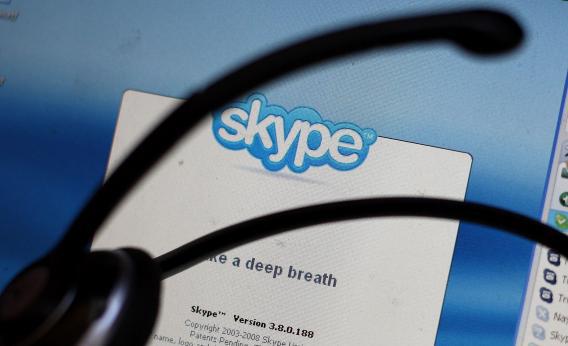With more people than ever now talking online as opposed to over the phone, it has become increasingly difficult for authorities to snoop on conversations. So the FBI—which says its ability to wiretap communications is “going dark”—wants to change the law, forcing companies like Facebook and Google to build “backdoors” that could be used to conduct surveillance.
As CNET reported last week, the FBI has been asking Internet companies not to oppose a proposal that would amend the Communications Assistance for Law Enforcement Act. The amendment would make it mandatory for social-networking Web sites and providers of voice over IP (such as Skype), instant messaging, and email to ensure their products are “wiretap-friendly.” At the moment, U.S. security agencies don’t have any simple, wholesale “backdoor” solution they can quickly tap into (provided a warrant has been issued) as they can a mobile phone or landline network. And that’s what the FBI wants to change (as do British authorities).
It has long been rumored that some services, like Skype, already provide law enforcement with a wiretapping backdoor, but reports from countries including Germany and Switzerland have shown that infecting a computer with Trojan horse-style spyware is still often necessary.
“From the FBI’s perspective, expanding CALEA to cover VoIP, Web e-mail, and social networks isn’t expanding wiretapping law,” CNET’s Declan McCullagh writes. “If a court order is required today, one will be required tomorrow as well. Rather, it’s making sure that a wiretap is guaranteed to produce results.”
Unsurprisingly, however, that’s not how privacy and civil liberties advocates see it. After the CNET story broke Friday, Salon’s Glenn Greenwald drew comparisons between the proposed surveillance expansion and ubiquitous monitoring programmes carried out by authoritarian rulers in the Middle East. The rationale underpinning it, Greenwald wrote, is “that it is intolerable for any human interaction to take place beyond the prying eyes and ears of the government.”
Former National Security Agency executive Thomas Drake agrees. The whistle-blower, who was charged in 2010 after leaking information about an eavesdropping program to the Baltimore Sun, posted on Twitter, “[They] want to do what they are already doing—just make it easier. Secret surveillance & monitoring for profiling & tracking=control.”
One enterprising innovator recently vowed to start a new “surveillance proof” Internet provider “dedicated to privacy, using ubiquitous encryption.”
If that’s true, perhaps increased levels of digital surveillance could prove counter-productive. If the Internet becomes a place where people are concerned their communications are being monitored, they will simply take steps to avoid it. Greater numbers may begin to adopt encrypted methods of communication in conjunction with anonymizing tools such as Tor. People plotting crimes will vanish deeper underground. Even with a backdoor wiretapping capability enabled across the Internet, the FBI’s “going dark” problem will not disappear.
